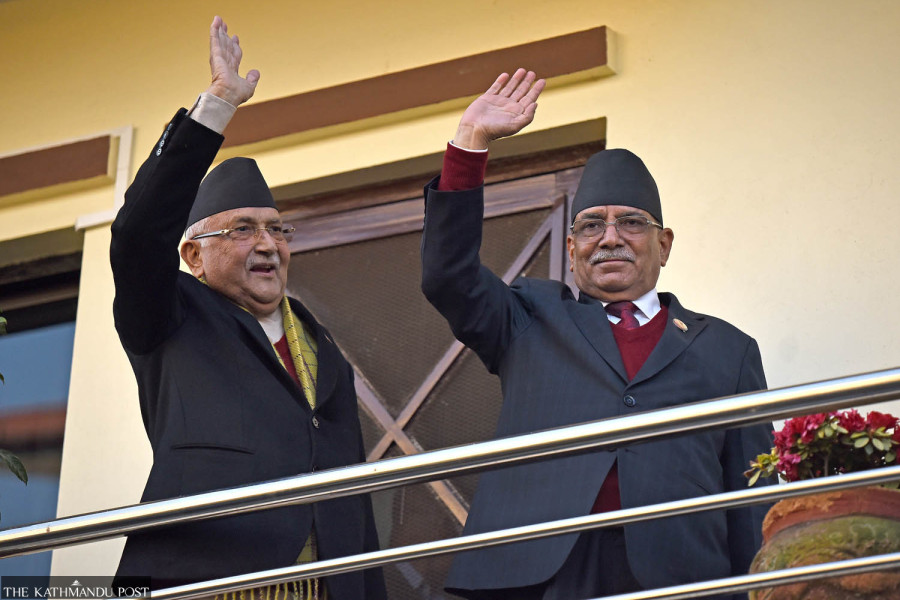Editorial
Sixty days
How many governments will the country see in the next five years?
The two-month Maoist Centre-UML coalition is now on the verge of breaking down. This could further lower the bar for the already ephemeral standards of Nepali governments. As was suspected at the time, the only reason this government came into being last Christmas was in order to satisfy the cravings of Maoist Centre chair Pushpa Kamal Dahal and his CPN-UML counterpart KP Sharma Oli for the country’s top executive office. But precisely because the coalition was built on such a shaky foundation, when Dahal’s ambition to be prime minister was realised, he saw no reason to honour his earlier power-sharing deal with Oli, whereby the two would each lead the country for two and half years. In the current ideology-lite state of national politics focused on power politics rather than broader national interest, personal power aspirations of individual leaders is all that seems to matter. This begs the question: If a power-sharing understanding among major parties cannot last even two months, where is our politics headed? How many governments will the country see in the next five years? And as the mad scramble for power and perks continues, won’t the public lose even the little trust they have in their politicians and the new system they collectively envisioned less than two decades ago?
The country’s presidency is supposed to be a largely ceremonial office, a symbol of national unity. Yet rather than the occupant of the office being decided based on individual merit, the race for the new President has also been reduced to a game of political bargaining. Whether it is Ram Chandra Paudel or Subas Nembang who is elected the new President, they get to occupy the high office as doing so serves the individual interests of Sher Bahadur Deuba and KP Sharma Oli, the leaders of their mother parties. It is also hard to believe that after so much political jostling for the post, the new head of state can stay above the political fray and act as a neutral protector of the constitution. In all likelihood, the President’s Office will continue to be used to serve the vested interests of certain political actors, perhaps even more so than in the past.
How do people hope when the sole focus of the major political actors they elected is getting to and staying in power? This also raises a concomitant question: Has the time come to rethink the current electoral system that seems incapable of giving a stable government? It is important to explore ways to make the current system more stable as the existing safeguards to do so (the ban on bringing a no-confidence motion for the first two years, for instance) don’t seem to be working. The ultimate goal should be to secure the future of the new federal republic. It is incredible that while political parties seek “national consensus” on the new President, no such avenue is explored to ensure the all-important political stability. It is up to the political parties who gave birth to the current system to prevent it from imploding—or they will go down with it.




 13.12°C Kathmandu
13.12°C Kathmandu














